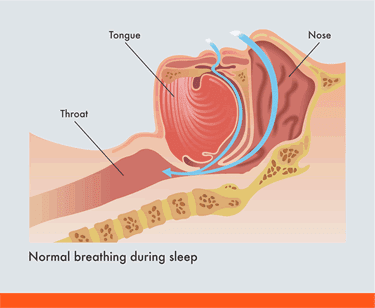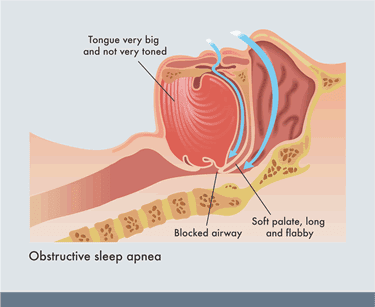Clinical Diagnosis: Obstructive Sleep Apnea
Hypertension
Obesity
Depression
GERD (gastroesophageal reflux disease)
Diabetes Mellitus
Hypercholesterolemia
Asthma
No Comorbidities
Breathing During Sleep


Risk factors for obstructive sleep apnea include obesity, age, gender, menopause, alcohol use, smoking, and family history. An evaluation of 100 patients (84 men and 16 women) with an average age of 50 years showed how common it is for obstructive sleep apnea patients to suffer from other ailments. Hypertension is the most common condition that can be caused by obstructive sleep apnea with 39% of the 100 patients afflicted. Nearly half of all hospital patients who suffer from hypertension also have obstructive sleep apnea. Other notable conditions include obesity, which affects 34%, depression which affects 19%, and GERD which affects 18% of the 100 patients. More statistics can be seen at the top of the page.
56.2% of patients faced simultaneous conditions due to obstructive sleep apnea. Whether or not a patient suffers from more than one condition depends on their lifestyle and risk factors. Obstructive sleep apnea can be a serious health risk if you feel that show some symptoms of obstructive sleep apnea, consult with your physician. He or she will be able to evaluate you and possibly test for obstructive sleep apnea or another sleep disorder.
Get Started with a Self-Assessment Today
More on the study mentioned above can be found at http://www.ncbi.nlm.nih.gov/pmc/articles/PMC4835326/
